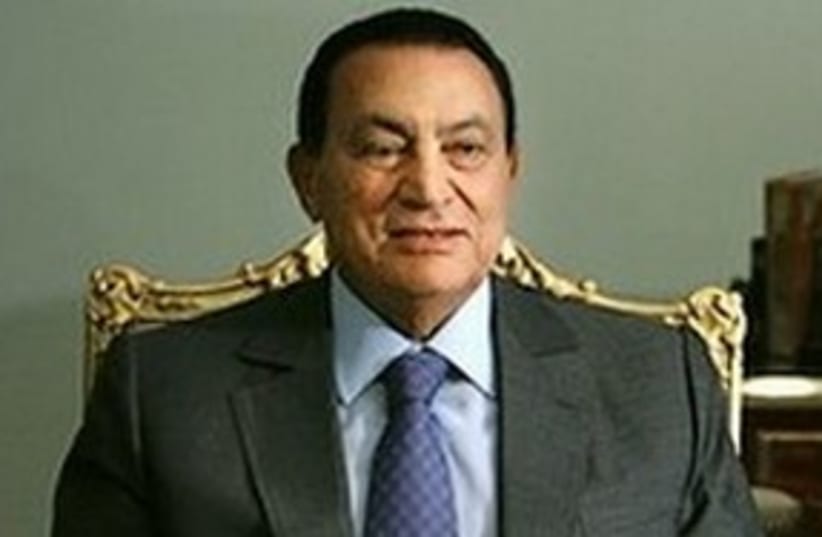RELATED:White House lauds Mubarak's ‘monumental changes’Reporter's Notebook: Foreigners face danger in EgyptThe government has promised several concessions since an uprising began two weeks ago but so far they have fallen short of protesters' demands that Mubarak step down immediately instead of staying on through September elections. Tuesday's decision was the first concrete step taken by the longtime authoritarian ruler to implement promised reforms.The same day, Egypt released 34 political prisoners, the state news agency said, the first men set free since the government promised reforms to quell the popular uprising, reported Reuters on Tuesday."Interior Minister Mahmoud Wagdy issued an order today releasing 34 political detainees considered to be among the extremist elements, after evaluating their positions," Reuters reported the MENA agency as saying."They showed good intentions and expressed their desire to live peaceably with society," it added.According to the Reuters report, the MENA agency said the political prisoners had handed themselves over to the authorities after escaping from jail during several days of disorder last month.Mubarak also ordered a probe into clashes last week between the protesters and supporters of the president. The committee would refer its findings to the attorney-general, Suleiman said."The youth of Egypt deserve national appreciation," he quoted the president as saying. "They should not be detained, harassed or denied their freedom of expression."Thousands of protesters, meanwhile, remained camped out in the central Tahrir Square, many hoping for an appearance by Google Inc. executive Wael Ghonim, who has emerged as a rallying point after he was released Monday after 12 days in custody.
Mubarak forms committees for reform in Egypt
Suleiman says constitutional changes will relax eligibility to run for president, limit number of terms; gov't releases 34 political prisoners.

RELATED:White House lauds Mubarak's ‘monumental changes’Reporter's Notebook: Foreigners face danger in EgyptThe government has promised several concessions since an uprising began two weeks ago but so far they have fallen short of protesters' demands that Mubarak step down immediately instead of staying on through September elections. Tuesday's decision was the first concrete step taken by the longtime authoritarian ruler to implement promised reforms.The same day, Egypt released 34 political prisoners, the state news agency said, the first men set free since the government promised reforms to quell the popular uprising, reported Reuters on Tuesday."Interior Minister Mahmoud Wagdy issued an order today releasing 34 political detainees considered to be among the extremist elements, after evaluating their positions," Reuters reported the MENA agency as saying."They showed good intentions and expressed their desire to live peaceably with society," it added.According to the Reuters report, the MENA agency said the political prisoners had handed themselves over to the authorities after escaping from jail during several days of disorder last month.Mubarak also ordered a probe into clashes last week between the protesters and supporters of the president. The committee would refer its findings to the attorney-general, Suleiman said."The youth of Egypt deserve national appreciation," he quoted the president as saying. "They should not be detained, harassed or denied their freedom of expression."Thousands of protesters, meanwhile, remained camped out in the central Tahrir Square, many hoping for an appearance by Google Inc. executive Wael Ghonim, who has emerged as a rallying point after he was released Monday after 12 days in custody.